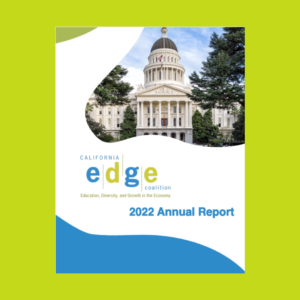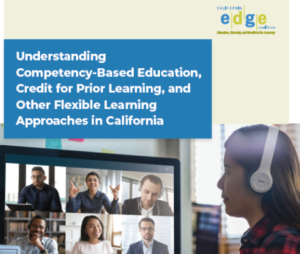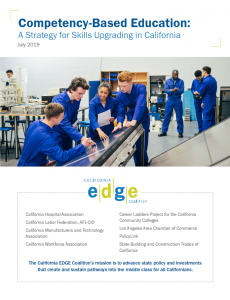
2022 Annual Report
Dear Friends, California has a staggering number of unfilled good jobs and an incredible pool of talent living in poverty or below a living wage.
This is a moment of tremendous opportunity for California’s workforce programs and institution, which have suffered from neglect and underfunding for numbers of years. Each of the initiatives described builds on innovative efforts that have been incubating in the regions even in the face of fiscal and other obstacles.
This short paper identifies some of the key workforce achievements of this past year and points to a number of implementation challenges the state faces to ensure that we succeed in transforming a fragmented delivery system into to one that works effectively for students, job-seekers, and employers alike. To learn more, download the full text of the article here.
In 2013, the Legislature took another step toward the development of a robust career pathway system when it allocated $250 M to build on California’s strong foundation of Partnership Academies, Linked Learning programs, and Regional Occupational Programs. The 2013-14 budget established the California Career Pathways Trust that will provide competitive grants to school districts, county superintendents of schools, charter schools, and community colleges to further develop career pathways and to strengthen connections with postsecondary institutions and business/industry.
California workers earning less then $13.63 per hour


Dear Friends, California has a staggering number of unfilled good jobs and an incredible pool of talent living in poverty or below a living wage.

EDGE recently partnered with the California Association of Alcohol and Drug Program Executives (CAADPE) to publish a new report, Identifying Barriers to Employment After Substance

Dear Friend, I’m excited to bring you the first annual State of the California EDGE Coalition Report intended to provide you with an overview of our successes

Postsecondary credential attainment is a primary path to economic and social mobility. However, more than 5.5 million Californian adults have some college but no degree and are no longer enrolled. For millions more who are juggling personal and work responsibilities, fitting college into an already hectic life seems impossible.

. A new policy brief released by the California EDGE Coalition examines the ways in which other states are now successfully employing competency-based approaches to teaching and learning which allow students to move flexibly – and often much more quickly – through an educational program that is designed to make sure they know and can do what is expected of graduates.

Many Californians face significant financial, educational and navigational barriers to completing the education and training they need to succeed in today’s labor market. Read our latest publication, Making Certificate and Degree Completion More Affordable and Accessible for Low-Wage Workers